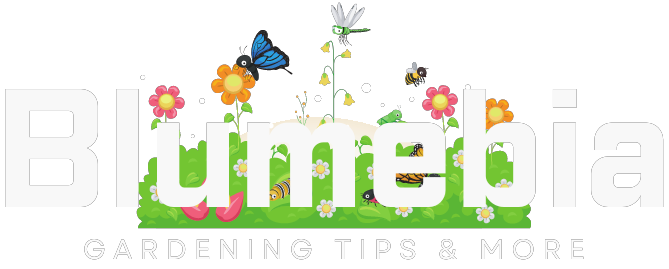If you’re looking to cultivate a beautiful flower garden using organic practices, there are a few techniques you should keep in mind. Organic flower gardening involves using natural methods to maintain soil fertility and prevent pests and disease. By avoiding synthetic chemicals, you can create a healthy and sustainable garden that benefits both your plants and the environment.
One of the first steps in organic flower gardening is to choose the right location for your garden. Most flowers require at least six hours of direct sunlight per day to grow and bloom to their fullest potential. You’ll also want to consider factors like soil quality, drainage, and exposure to wind and other elements. By selecting a location that meets your plants’ needs, you can help them thrive and minimize the risk of pests and disease.
Another key technique in organic flower gardening is to focus on building healthy soil. This involves adding organic matter like compost, manure, or leaf litter to your soil to improve its structure, fertility, and water-holding capacity. Healthy soil can also support a diverse community of beneficial microorganisms, which can help break down organic matter and release nutrients to your plants. By using these and other organic practices, you can create a beautiful and sustainable flower garden that will reward you with vibrant blooms year after year.
Fundamentals of Organic Flower Gardening
Understanding Organic Gardening Principles
Organic gardening is a method of growing plants without the use of synthetic fertilizers, pesticides, or genetically modified organisms (GMOs). Instead, organic gardeners rely on natural methods to nourish and protect their plants, such as using compost, cover crops, and beneficial insects.
One of the key principles of organic gardening is soil health. Healthy soil is rich in organic matter, which provides essential nutrients to plants and helps retain moisture. Organic gardeners often add compost, manure, or other organic materials to their soil to improve its health.
Another important principle of organic gardening is biodiversity. By planting a variety of flowers, you can attract a diverse array of beneficial insects and pollinators to your garden. This can help control pests and ensure that your flowers are pollinated, which is essential for fruit and seed production.
Selecting Suitable Flowers for Organic Cultivation
When selecting flowers for your organic garden, it is important to choose varieties that are well-suited to your climate and growing conditions. Some flowers, such as sunflowers and zinnias, are easy to grow and attract a variety of beneficial insects. Others, such as roses and peonies, require more care and attention.
It is also important to choose flowers that are disease-resistant and pest-resistant. Some flowers, such as marigolds and nasturtiums, are known for their ability to repel pests and attract beneficial insects.
Finally, consider the bloom time of your flowers. By choosing a variety of flowers that bloom at different times throughout the growing season, you can ensure that your garden is always in bloom and that there is always a source of food for pollinators.
By understanding the principles of organic gardening and selecting suitable flowers for your garden, you can cultivate a beautiful and healthy flower garden using organic practices.
Soil Preparation and Management
To cultivate a beautiful flower garden using organic practices, you need to start with healthy soil. Creating a healthy soil environment involves two key aspects: soil structure and nutrient content.
Creating a Healthy Soil Environment
To improve soil structure, start by removing any weeds or debris. You can manually pull them out or use a garden tool like a hand trowel to dig them up. Next, loosen the soil with a garden fork or tiller to a depth of about six to eight inches. This will help improve the soil’s structure and allow for better water penetration and root development.
To enrich the soil’s nutrient content, incorporate organic matter such as compost or decomposed plant material. This will enhance soil nutrients, plant growth, and productivity, leading to higher yields and healthier crops. Mix all ingredients on a tarp before adding them to the bed’s box to prevent creating pockets of a single ingredient. Top dress the surface with 1 to 2 inches of compost, then a couple of inches of mulch. Amend your soil at least once a year with organic nutrients to make up for what the plants take out.
Natural Fertilizers and Amendments
Natural fertilizers and amendments are essential to maintaining a healthy soil environment. Some examples include:
Compost: Compost is a rich source of organic matter and a natural fertilizer. It improves soil structure, water retention, and nutrient availability.
Bone Meal: Bone meal is a natural source of phosphorus, an essential nutrient for plant growth. It also contains calcium, which helps maintain soil pH levels.
Fish Emulsion: Fish emulsion is a natural fertilizer that contains nitrogen, phosphorus, and potassium. It is a quick-release fertilizer that can be used to provide a boost of nutrients to plants.
Epsom Salt: Epsom salt is a natural source of magnesium, which is essential for plant growth. It also helps improve soil structure and water retention.
By incorporating these natural fertilizers and amendments into your soil management plan, you can maintain a healthy soil environment and cultivate beautiful flower gardens using organic practices.
Organic Pest and Disease Control
When it comes to organic flower gardening, pest and disease control can be a challenge. However, with the right preventative practices and treatment options, you can keep your garden healthy and beautiful without the use of harmful chemicals.
Preventative Practices
The best way to prevent pests and diseases in your flower garden is to create a healthy growing environment. Here are some preventative practices to keep in mind:
Choose the right location: Make sure your flowers are getting enough sunlight and air circulation to stay healthy.
Plant the right flowers: Choose flowers that are native to your area and are resistant to common pests and diseases.
Keep your garden clean: Remove any dead or diseased plant material from your garden to prevent the spread of disease.
Water properly: Overwatering can lead to fungal growth, so make sure to water your flowers only when necessary.
Use companion planting: Planting certain flowers together can help repel pests and attract beneficial insects.
Organic Treatment Options
If pests or diseases do make an appearance in your flower garden, there are several organic treatment options available:
Neem oil: This natural oil is effective against a wide range of pests and diseases, including aphids, spider mites, and powdery mildew.
Insecticidal soap: Made from natural ingredients, insecticidal soap is a safe and effective way to control pests like whiteflies and mealybugs.
Diatomaceous earth: This powder made from fossilized algae can be sprinkled around your garden to kill pests like slugs and snails.
Copper fungicide: This natural fungicide can be used to control fungal diseases like black spot and powdery mildew.
By using these preventative practices and organic treatment options, you can keep your flower garden healthy and beautiful without the use of harmful chemicals.
Frequently Asked Questions
What are the best techniques for preparing soil organically for flower gardening?
Preparing soil for organic flower gardening requires a bit of effort, but it’s worth it. The best technique is to start by testing your soil to determine its pH level and nutrient content. You can then amend your soil with organic matter such as compost, manure, or leaf mold to improve its texture and fertility. It’s also essential to add natural amendments such as bone meal, blood meal, or fish emulsion to provide the necessary nutrients for your flowers to thrive.
How can I naturally control pests in my organic flower garden?
One of the most effective ways to control pests in your organic flower garden is to encourage beneficial insects and other organisms that prey on pests. You can also use natural pest control methods such as companion planting, crop rotation, and physical barriers like row covers. Another option is to use organic pesticides made from natural ingredients such as neem oil or pyrethrin.
What are the benefits of using organic fertilizers in flower gardening?
Organic fertilizers offer several benefits for flower gardening. They provide a slow-release source of nutrients that are readily available to plants, improve soil structure and fertility, and promote healthy root growth. Organic fertilizers also help to maintain soil pH levels, reduce soil erosion, and increase the water-holding capacity of the soil.
Can you recommend some organic mulching methods for flower beds?
Mulching is an excellent way to improve soil health, reduce weed growth, and conserve soil moisture in flower beds. Organic mulching materials such as straw, leaves, grass clippings, or shredded bark are great options. You can also use organic weed barriers like newspaper or cardboard to suppress weed growth.
How do I choose the right organic seeds or plants for my flower garden?
When choosing organic seeds or plants for your flower garden, look for varieties that are well-suited to your climate and soil conditions. You can also choose plants that are resistant to common pests and diseases. Check the seed packet or plant label for information on planting depth, spacing, and light requirements.
What are effective ways to water an organic flower garden sustainably?
Watering an organic flower garden sustainably requires careful planning and management. One effective method is to use a drip irrigation system that delivers water directly to the roots of your plants. You can also collect rainwater in a barrel or other container and use it to water your plants. It’s important to water your plants deeply and infrequently to encourage strong root growth and reduce water waste.



